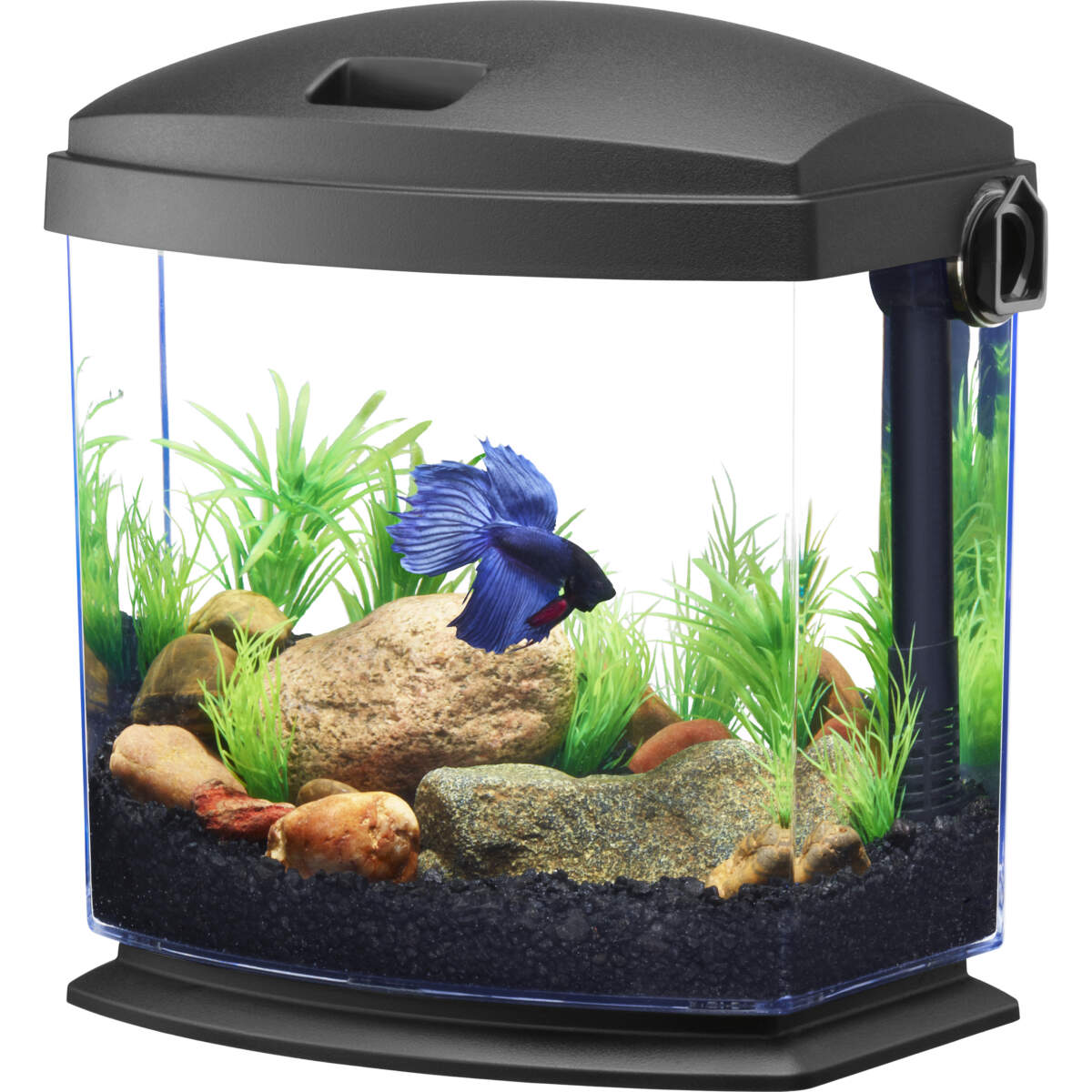Making the Most of Summer: Why a fish tank is the perfect addition to your child's summer vacation
With school out for the summer, now is the perfect time for your kids to explore new hobbies and develop valuable life skills. Without structured routines to keep them busy, children are often desperate to escape the boredom that comes with endless free time. To keep them entertained around the house, consider an often overlooked educational tool — the mighty fish tank.
Beyond lending visual appeal to any room, a fish tank can provide hours of entertainment, create lasting memories, and instill a newfound sense of responsibility in your children. Here are five ways keeping a fish tank during the summer break can contribute to your child's overall development.
1. Provide educational opportunities.
By bringing nature into the home, a fish tank opens up a whole new world of educational possibilities for children. It provides an avenue for learning about various fish species, their habitats and dietary needs, and their unique characteristics. Getting an immersive, hands-on lesson in biology, chemistry, and ecology in a practical setting makes learning a much more engaging and memorable experience.
2. Develop responsibility and caretaking skills.
Keeping a fish tank requires regular maintenance and care, which can teach children valuable life lessons about meeting the needs of living creatures and the consequences of neglect. By regularly feeding their fish, monitoring water conditions, and cleaning the tank, kids learn responsibility and accountability for their pet fish. As they witness the direct impact of their actions on the fish's well-being, children can also learn respect for nature, animals, and the environment.
3. Help deepen their understanding of the ecosystem and their role in preserving it.
By showcasing a miniature ecosystem that's accessible from their home, a fish tank can provide excellent opportunities for kids to learn about the natural world. Through observing the interactions between fish, plants, and other organisms on a daily basis, children gain insight into the delicate balance of an aquatic environment and their responsibility to preserve it.
They can also learn about concepts such as the nitrogen cycle, water filtration, the biological processes happening in the tank, and the importance of maintaining water quality. These lessons deepen their understanding of science and help them become more aware of the importance of protecting the environment.
4. Develop observation skills and patience.
Keeping a fish tank at home encourages children to develop their observation skills. As they watch the fish go about their daily activities, they start to notice details and patterns. They also learn the value of patience. By realizing fish have their own pace and behaviors, kids come to understand that quietly waiting and observing is the best way to truly understand and appreciate their habits. These skills can pave the way for self-reflection, introspection, and the ability to adapt and learn from their experiences later on in life.
5. Provide stress relief and emotional well-being.
Keeping a fish tank may have a calming effect on children and their parents. This can be particularly beneficial during the summer break when children may experience changes in their routine or get free time they're not used to having.
Watching the soothing, rhythmic movements of fish swimming around may reduce stress and anxiety and may lower blood pressure. Keeping a fish tank and caring for the fish inside it creates a peaceful atmosphere and a therapeutic experience. It gives children a sense of companionship, which can boost their mood and overall well-being.
Keep Summer Learning Fun with an Oasis in Your Living Room
A fish tank is so much more than just a decorative element in your living space. It can also be an easy gateway to your child's exploration, learning, and personal growth this summer while fighting off the boredom that can come with having too much free time. By providing educational opportunities, deepening their understanding of ecosystems, and instilling qualities such as patience, reflection, and taking responsibility, this underrated tool may do wonders for your child's development and emotional well-being that extend far beyond the summer months.





